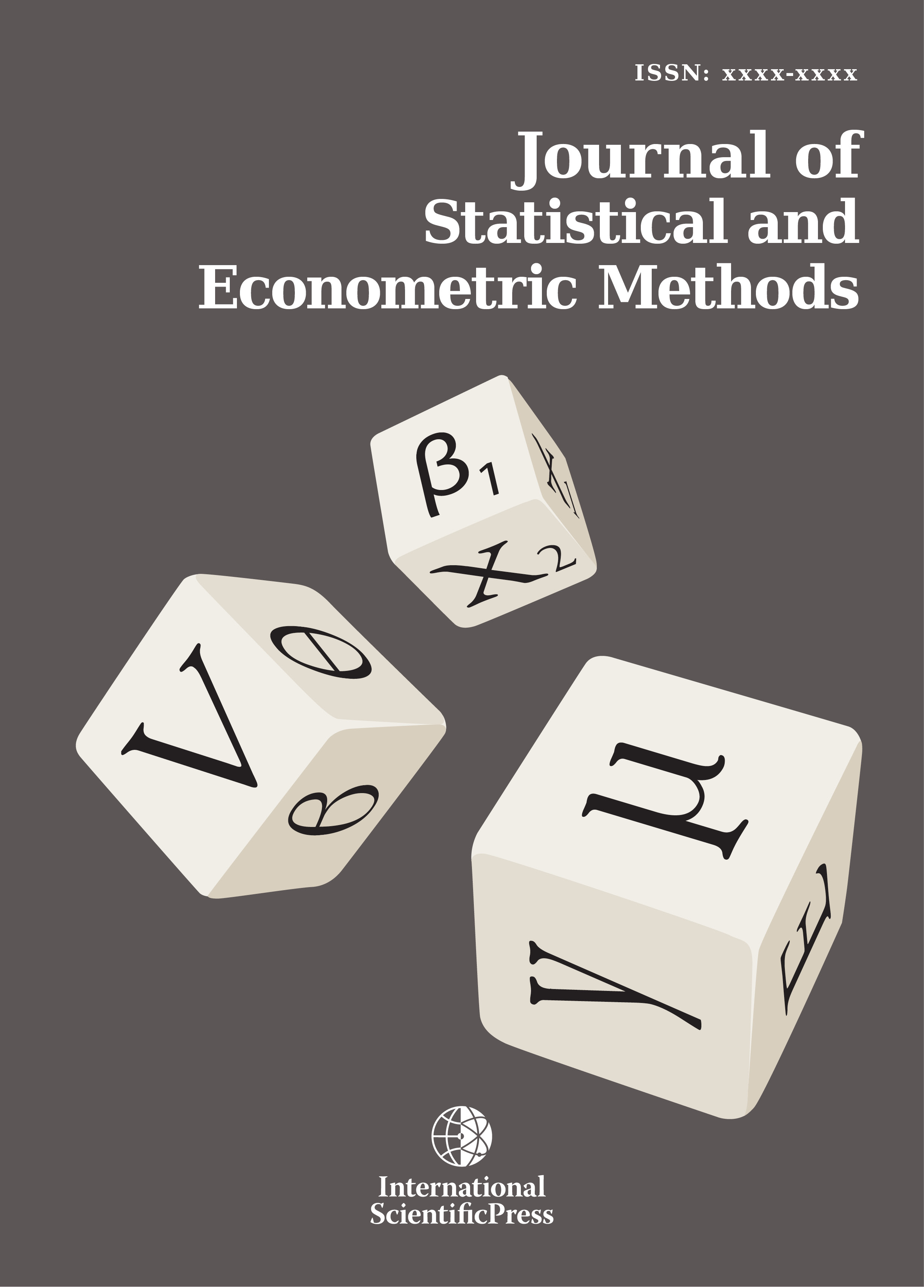Journal of Statistical and Econometric Methods
On a new measure of rank-order association
-
 [ Download ]
[ Download ]
- Times downloaded: 9992
-
Abstract
Rank correlations currently in use have a resistance-to-change which appears to be of limited value for the purposes of ranking comparisons. It is plain that a given value of a rank correlation does not define a specific pair of permutations, except perhaps for the extreme values. Nevertheless, a coefficient that condenses comparison of rankings into too few values renders difficulty the assessment of the strength of their association. Recently, a new statistic of rank correlation, called r4, has been proposed to exploit the intuitive appeal of quotients. Coefficient r4 achieves greater sensitivity to changes in rankings than any other known rank correlation without causing additional difficulty in interpretation or affecting the implementation in hypothesis testing. In the present paper we show that the exact distribution of r4 under the hypothesis of independent rankings is well approximated by the t-Student and that, its asymptotic distribution, is a standard Gaussian distribution. Computational results for empirical and simulated data sets reveal that r4 is very efficient in evaluating strength and pattern of an agreement between pairs of rankings.
